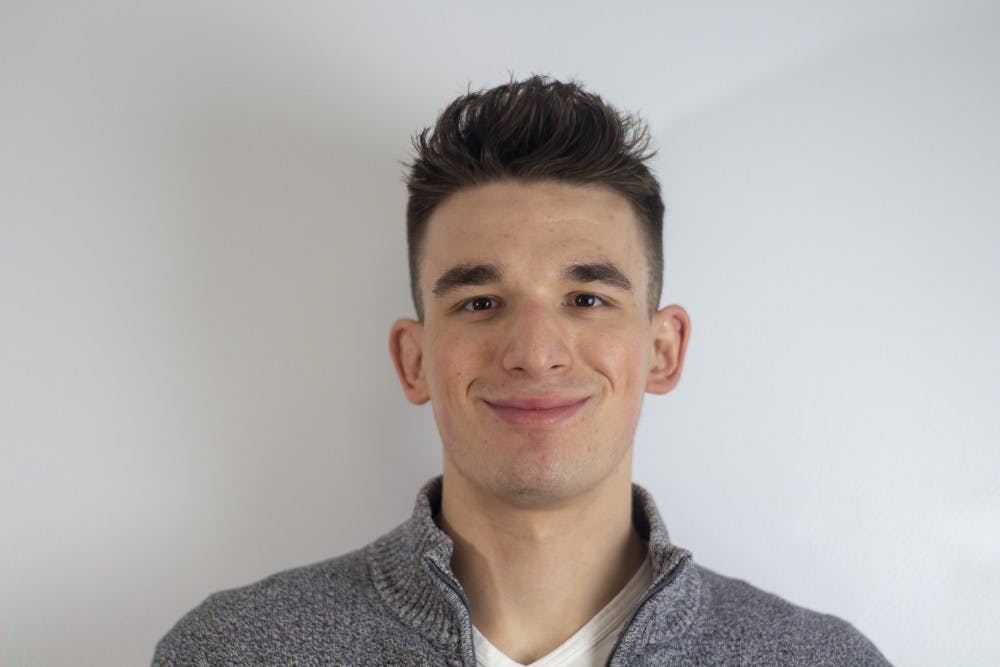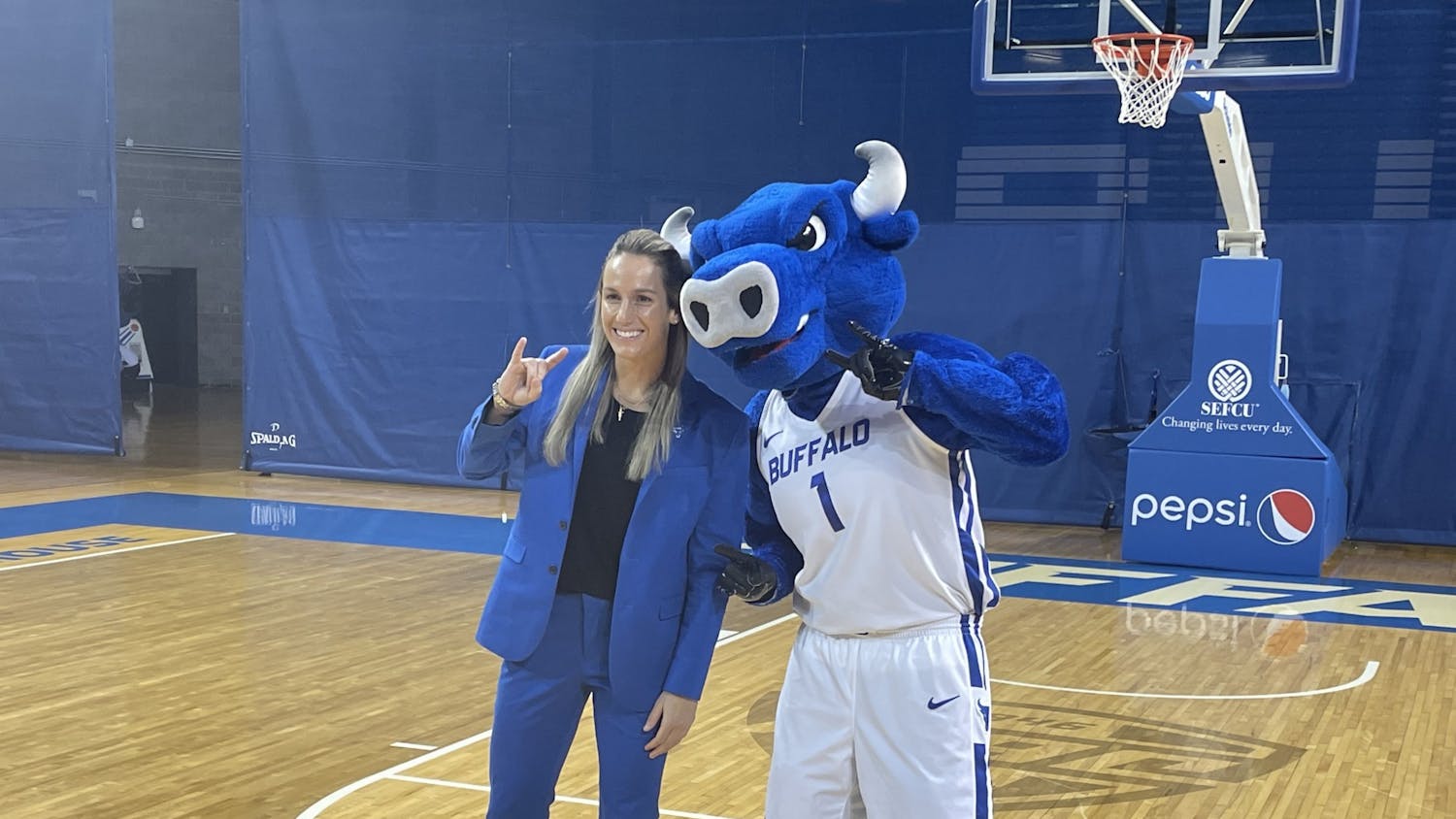Susan Rice has worked with U.S. presidents since 1993.
She spent four years working closely with President Obama as national security adviser, five years as a United Nations ambassador and four years as assistant secretary for African Affairs under President Clinton.
She shared some of her experience and viewpoints on current issues on Wednesday night at Alumni Arena.
Rice spoke and answered questions for UB’s 31st annual Distinguished Speaker Series, engaging students in conversations on the recent Florida school shooting, current social movements and UB’s controversial first president, Millard Fillmore among other subjects. She shared her experiences working as the national security adviser and other political positions as she engaged in relevant discussion topics.
The event, sponsored by the Student Association and Minority Faculty and Staff Association, was held not only for the Distinguished Speaker Series, but as UB’s 42nd Annual Martin Luther King Jr. Commemoration and in honor of the 50th anniversary of King’s death.
Pastor L. Darnell Donalson took to the stage to emphasize King Jr.’s dream, setting up for UB President Satish Tripathi to do the same.
After Tripathi’s speech, Linwood Roberts Jr., President of UB’s Minority Faculty and Staff Association, introduced Rice as she entered the stage to whistles and cheering from the large crowd of mainly non-students.
Rice opened her portion of the event with a 10-minute speech in honor of King Jr.’s life, and what can be gained if we are “faithful” to King’s legacy.
Rice said King’s idea of change may be “starting up again right now” with movements like the students in Parkland, Florida who took up the gun-control cause after the mass shooting at Stoneman Douglas High on Feb. 14.
Throughout her speech, Rice emphasized what she believes can be done to preserve the dream of a “better America.” The crowd erupted as Rice touched on minimum wage, safe schools and equal treatment.
At the conclusion of Rice’s speech, the event transitioned into a question and answer session, moderated by Victoria Wolcott, chair of UB’s history department.
Rice gave lengthy responses to questions from the audience pertaining to young people’s involvement in the current political climate as a way to evoke change. She emphasized the necessity for young men and women to participate in the election process, beyond the scope of criticism without action.
She referenced her pre-event interview with The Spectrum and shared her insight on young people getting involved in politics.
“Young people need to understand that they don’t get to take a pass on the issues of the day,” Rice said. “It’s not good enough to vent on Facebook or Twitter. They have to vote. They have to be engaged.”
Matthew Missico, a Buffalo resident, discussed the evening as well as the context of Rice’s speech.
“I like the fact that there was a lot of talk of unity and that there wasn’t really calling out of parties,” Missico said. “It was more focused on action and actual problems with specific solutions, or at least paths to solutions.”
Wolcott asked Rice about UB’s first president, Millard Fillmore, and the historical review of some of his actions, such as signing into law the Fugitive Slave Act in 1850, a topic covered by The Spectrum in 2017.
“History, by definition, is not something we can change. It’s something we can learn from. ... I think we can’t seek to make the figures of the past into something that they weren’t,” Rice said. “We have to understand them and know them in their full complexity. President Fillmore did a great deal that was beneficial. He has some aspects of his record that, I’m sure if he were alive today, he wishes he could change.”
But, Rice added, we can’t paint Fillmore, or any other historical figure, in our image today. She said it is our responsibility to study, to learn and to know “the good, the bad and the ugly.”
The Q&A session also touched on the recent Parkland, Florida shooting, with Rice emphasizing the need for action in Washington D.C. outside of constant debate. Rice asserted her view that little had been done in the past to curtail gun violence and sees a silver lining in the activism, “courage” and “bravery” of the student survivors.
“I think it’s extraordinary that young people who have come from such tragedy and trauma have had the presence, will and the guts to unite behind something they believe in deeply,” Rice said.
John O’Donnell, a Buffalo resident, was impressed by Rice’s presentation and looks forward to seeing what she does in the future.
“I’m thinking she’d make a nice candidate for president or vice president,” O’Donnell said. “She’s one sharp cookie who has a good sense of history certainly, and what’s going on in the world with a good way to resolve things.”
The arts desk can be reached at arts@ubspectrum.com.

Brenton J. Blanchet is the 2019-20 editor-in-chief of The Spectrum. His work has appeared in Billboard, Clash Magazine, DJBooth, PopCrush, The Face and more. Ask him about Mariah Carey.
Brian Evans is a senior English major and The Spectrum's senior arts editor.






